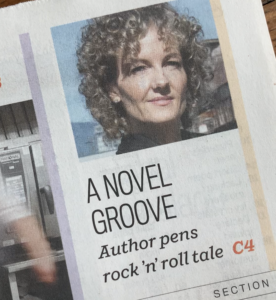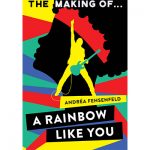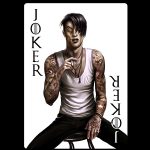
Rock star finds new tune with help from unlikely source in novel by Vancouver author
Veteran TV commercial producer Andréa Fehsenfeld’s second novel A Rainbow Like You shines light on a troubled musician and a wise teen.
Author of the article:
Dana Gee
Publishing date:
Dec 16, 2020 • December 16, 2020
Vancouver’s Andréa Fehsenfeld has produced TV commercials for a lot of big brands like Coca-Cola, Safeway, Home Depot, Intel and just about every car company you can think of. During that two decades of work the Vancouver native also found time to write.
Her second novel, A Rainbow Like You — yes, Jimi Hendrix Bold as Love fans you’re right — is just out and it stars a struggling rock star who after a year in exile in Mexico is back on tour and is miserable. Barely staying upright he has the added fun of a disgruntled band on his hands. Part-way through the tour and a bunch of vodka his life is shaken to the core when an unlikely stowaway pops out of a closet on his private bus.
On a break from her commercial career Fehsenfeld took some time to answer some questions from Postmedia News:
Question: Where did the idea for A Rainbow Like You come from?
Answer: I originally conceived Adrian as a character for a TV series, the spoiled brat son of an Ozzy Osbourne-type rock star. The series didn’t get picked up, but I never forgot him. After finishing my first novel, his voice returned out of the blue. But it was a different voice. In the TV show he was a teenager. Now, he was an adult and his personality is very different. His presence was so strong I wrote 30 per cent of the first draft in three weeks, although I didn’t find his wings, his complexity, until Draft 2.
Q: How do you know so much about the life of a touring rock star?
A: I caught the concert bug as a teenager and have seen over 400 shows. I’ve done festivals, road trips, plane trips, may or may not have snuck onto tour buses, met musicians, possibly kissed one or two, and generally feel like I’ve been on tour for most of my life, either at shows or on the road producing television.
Q: So what was your favourite show and why?
A: That’s a near impossible question, but one of the most memorable shows was New Year’s Eve in San Francisco, 1991. Nirvana, Pearl Jam and The Red Hot Chili Peppers. The energy of that show was nuts and I got a black eye in the mosh pit.
Q: Is your rock star protagonist Adrian a nod to anyone famous?
A: No. I try to avoid that. I like starting with an original slate. The world of rock ‘n’ roll has its share of tropes, and I wanted to create characters that surprised readers — Adrian, in particular. We’ve all seen, or read about, the out-of-control, groupie addicted musician. I wanted to counter expectations on every level.Q: What did you like about the idea of a 13-year-old stowaway and an emotionally struggling rock star leaning on each other?
A: Adrian required a foil and I like unexpected choices. The concept of a runaway on a tour bus not only had a lot of natural tension to it, but the age and gender difference, along with their respective troubles, created this unusual dynamic. Adrian is mercurial and private, Hastings unafraid on certain levels, with the beautiful, unedited bluntness of youth. She also has no history with Adrian, which gives her a certain amount of leeway in being so frank with him. It makes their scenes together believable. But ultimately, she has an agenda, one that braids their fates together in a very emotional way.
Q: If A Rainbow Like You gets picked up for TV do you have any casting favourites?
A: I definitely like Bryan Cranston as Mac, Adrian’s longtime manager. I feel he could bring the right nuance to the role. My gut tells me Hastings and Adrian will be newcomers. It’s always nice to have an idea of who could play who, but casting decisions end up being dictated by things beyond your control: actor availability, compensation and, ultimately, onscreen chemistry.
Q: There’s a set of lyrics and a link in the book to the song A Rainbow Like You, by Adrian Johnson. Did you write the song?
A: When I started the book in 2018, I knew there would be a song. I’d never written one before, but it all felt so natural — channelling Adrian and his emotions. In Los Angeles last year, I worked with a producer to lay down the basic track of the song. Although I can play basic piano and guitar, my producer is a professional musician and he plays all the instruments on the track. The biggest hurdle was finding a singer. After three months I almost gave up hope. And then I found Adrian!
Q: Is it hard for you to forget about the busy, multi-person world of a set and settle into the singular world of writing?
A: The combination actually works for me. I enjoy the frantic collaboration with fellow creatives during TV production. It’s a constant reminder of how much info my brain can hold at once! Because of the information overload, though, it takes a week or so to fully wind down once the job is done. I prefer producing TV commercials given their shorter time frame. It affords me the downtime I need to write in big, uninterrupted blocks.
Q: Does your production background inform the way you write or the stories you want to tell?
A: Definitely. I’m thinking of each chapter as a scene in a TV show or film — how to be both potent and poignant in a powerful way while keeping the flow tight. I also have a love affair with dialogue. It’s my favourite way to explore, and shade, characters.
Q: You produced the reality show Peak Season set in Whistler. How much reality is in a reality show?
A: Every reality show requires a certain amount of scene curation to help the narrative along. We minimized the need for this through effective casting — finding the right people who had a natural story arc and potential conflicts. The core struggles of each character weren’t concocted. Compared to similar shows airing around that time — The Hills, Jersey Shore — Peak Season didn’t have nearly as much production intervention. And it shows onscreen. It feels very raw, even watching it 10 years later.



